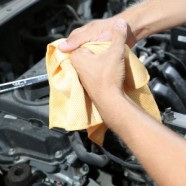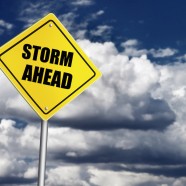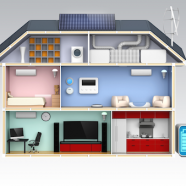Why You Need a Generator Maintenance Agreement
Between hurricanes, lightning strikes and tropical storms, power outages are always a worry in south Florida. Losing power is a concern for almost everyone in the area, but it can be a greater problem for some than for others. If you own a business or need electrical power for medical equipment, keeping the power on is crucial for your well-being. Installing a backup generator is the smart thing to do, but you can’t just put it in and forget about it until the next storm. Generator maintenance is something that has to be done on a regular basis if you want your power to stay on in an emergency.
What is Generator Maintenance?
Like a car or any other complicated piece of machinery, generators need servicing every now and again. Without this care metal might be worn or rusted, fuel can leak or get fouled, and the generator might not work when it’s most needed.
Among the tasks needed on a regular basis are:
- Cleaning the air filter
- Changing the oil
- Changing the spark plugs
- Sweeping off the outside intake vents
- Topping off fuel tanks
Finding a Contractor
The electrical contractor who installed your backup generator will probably be able to offer you a generator maintenance agreement. He’s the best choice to work with, because he’ll be intimately familiar with your particular generator brand and the way it was installed in your building. If your contractor doesn’t offer maintenance agreements, ask trusted friends for recommendations. Older companies may be a better choice, simply because a multi-year maintenance agreement counts on the reliability of the contractor. The bottom line is finding someone you trust to come back season after season.
If you’ve recently renovated your home or business, or you’re in the process of planning and creating a new building, your electrical contractor will probably offer you an electrical service contract. This includes monitoring all the electrical equipment in the building, from wiring to lighting. You can add generator maintenance to the service contract. It will be a simple matter for the contractor to check and maintain one more piece of equipment if he’s in your home or business, anyway.
Advantages of a Maintenance Agreement
You’ve got a busy life and, if you’re like most people, you have to prioritize the things in your life that take up your time. Backup generator maintenance may not even be on your weekly radar, much less high on the list of jobs you need to get done. If it’s not done on a regular, timely schedule, though, the odds are that one day, when you need it most, your power is going to go off and the generator won’t come on to replace it. A contractor who comes out once or twice a year makes sure your generator is in great shape and ready for any outage that might happen. You won’t have to remember to do it, and it won’t take hours out of your busy afternoons.
If you have medical issues that require a constant source of electricity or if you run a business in south Florida, having a generator maintenance agreement can pay for itself after one blackout. The peace of mind you’ll have knowing a professional has maintained your machine can be more valuable than the cost of any contract.
Read MoreGet Money Back from Tax for Installing a Home Standby Generator
Florida is known as the lightning capital of the country, and between lightning, tropical storms, hurricanes and accidents, power outages are a frequent fact of life. If it’s short-lived it may be just an inconvenience, but if your health or business rely on a steady source of power, even the briefest outage can be a severe problem. The best way to ensure you have a steady source of power is to install a home standby generator.
In addition to the obvious advantages of having a reliable power source, you can also use some of the cost of a generator as a deduction on your federal income tax. With three different ways to take advantage of the tax code, it’s likely that you can find at least one way to deduct a portion of the costs of installing a home standby generator.
Capital Gains Tax Credits
As with all the advice in this post, check with a tax attorney or accountant to determine your individual tax liability and the ability to use any credits. If you sell a home and purchase a new one within a certain amount of time, you’ll avoid paying a capital gains tax on the sale of your old home. If you’ve done this more than once, however, you may still owe taxes on the capital gains. Selling a home and not buying another one will automatically cause you to be liable for the taxes, but if you’ve installed a whole house backup generator, you may be able to take a capital gains tax credit, reducing your tax bill at the end of the year.
Energy Tax Credits
The federal government subsidizes renewable energy such as wind and water, but many states will give you an energy tax credit if you install a natural gas, whole-house generator. This is because natural gas is a greener fuel, creating less of a carbon footprint. If you opt for a home standby generator that has the ability to run on biofuel such as that created in landfills, you may be eligible for an additional tax credit or even an alternate fuel grant. Your state energy department will have all the information needed available for you and your accountant.
Medical Needs
If your doctor will verify that a continuous supply of power is crucial for your health and well being, you may be eligible for a tax credit for your generator. You’ll need to itemize your deductions at the end of the tax year. Once itemized, every bit of legitimate medical expenses over the legal limit, which is 7 to 10 percent of your gross income, is deductible. The power has to be a crucial factor for keeping either you or a family member alive and healthy, and you’ll have to include a certified letter from a medical doctor detailing the medical condition and swearing that a constant power supply is a medical necessity. Depending on your income, you may be able to write off some or even all of the expense of having a backup generator installed in your home.
Natural Disasters
While not a tax deduction, FEMA does offer reimbursements for electrical generators in case of a national or local emergency. The program starts when your governor declares a state of emergency, and it will continue until the power comes back on. Have your whole house backup system installed or buy a portable generator during that time, and you can be eligible for getting the entire cost of the generator reimbursed.
There are multiple ways to reduce the cost of installing a home standby generator, but the benefit of having reliable power is priceless. Call us today to discuss how we can help meet your needs while saving you money.
Read MoreComparing a Standby Generator With a Portable Generator
Power outages are a fact of life in Florida, where there are more lightning strikes per square mile than in any other state. While most blackouts last an hour or less, enough of them last longer that it can become a significant problem. If you have health issues or run a business that relies on a constant source of electrical power, a power outage can be a real danger. This is where a backup power supply comes in.
Backup supplies come in two forms: a standby generator and a portable generator. Both of them convert fuel into electrical power to keep the lights and appliances running on your property. Although a portable generator is less expensive to own, it isn’t a good choice for backup power in your home or business. Unlike portable generators, a built-in standby generator is built for long time use.
Powering a Generator
Portable generators run on gasoline which has to be stored on your property if you want to have it on hand when the power goes out. In a blackout, the pumps at the gas station won’t work, so you have to store your supply ahead of time. This is dangerous many even be illegal in your community. In addition, a portable generator will need to be refilled every few hours, during bad weather or even in the middle of the night.
A standby generator, on the other hand, will run for days on either natural gas or propane. Either one of these fuels is readily available in the absence of electrical power, and you don’t have to worry about dangerous storage problems or about gas getting stale and having to be replaced. The generator will turn itself on when the power goes out, and you don’t have to worry about keeping a fuel supply running to the unit.
Generator Safety
Portable generators can never be run indoors or directly up against your building. They have to be faced away from your structure and an extension cord is used to run power from the unit into your house or business. Combine frequent refueling with extension cords stretching across your property in bad weather and you’ve got an uncomfortably dangerous situation.
With a standby generator, toxic fumes aren’t a concern because your electrical contractor will permanently install it a safe distance from your building. There’s no need to worry about fueling because it will be permanently attached to your home fuel supply. Instead of needing dangerous extension cords strung across your yard, a permanent electrical installation will keep your standby generator attached to the building and ready to supply power when needed.
Risk of Theft
It’s a sad fact but during long-term power outages, one of the biggest problems is people stealing portable generators, usually in the middle of the night. The loud noise is a tip-off to would-be thieves, as are the bright lights shining in an otherwise dark neighborhood. All a thief has to do is to unplug the extension cord and wheel your portable generator away.
If you have a standby generator built into your property, theft won’t be an issue. They’re much less noisy, but, more importantly, yours will be permanently attached to your power and gas lines as well as the base foundation. Thieves like easy work, and pulling out a heavy standby generator is the last thing they’ll want to do when an easy portable unit is probably available somewhere in your neighborhood.
Read MoreWhat’s the TRUE Cost of a Hurricane for a Homeowner?
Hurricanes are something that every resident in southeast Florida needs to take seriously. Living through a hurricane is a distinct possibility every year, and each May meteorologists predict deadlier storms for the area during the coming hurricane season. Traditional television coverage shows news reporters standing dramatically in front of ragged palm trees swaying in the wind, but losing your landscaping is the least of your worries during these storms. Florida residents face devastating losses from each hurricane, but you can prevent most of the damage by planning ahead and installing protection from power failures.
Loss of Power
During the worst of the storms, the first thing to happen is usually an electrical power failure. Losing power means different things for everyone, but at the very least it endangers food in refrigerators and lives in terms of needed medical machinery. Some things, like the loss of lights and televisions, can be seen as minor inconveniences. They’re easily dealt with by using alternate means such as candles and lanterns for lights and battery-operated entertainment devices. On the other hand, losing power to your refrigerator and freezer can mean losing hundreds of dollars worth of meat and produce. Losing your internet can mean huge losses at your job. And loss of electrical power can be life-threatening if you depend on oxygen tanks or refrigeration for your medication.
Safeguarding Power
The best way to ensure you won’t suffer from damage during an electrical power failure is to install a standby home generator. The size of generator you need depends on the size of your house and the amount of power you feel you absolutely need during the outage. You may be able to get by with the refrigeration and lights afforded by a smaller unit. On the other hand, if your health requires you to stay in a cool and dehumidified environment, you’ll need a larger unit that’s capable of running your central air conditioning unit. All units run in a similar manner, and they all have to be maintained monthly, but you decide how much power you really need during an outage.
Lightning Strikes
Hurricanes aren’t just wind and rain storms. They can create some intense lightning in a state that’s already number one in the country for strikes. Adding lightning protection to your home can mean the difference between a frightening noise and a serious fire hazard. Lightning strikes hundreds of buildings each year in Florida. Have your local electrical contractor install lightning protection in the form of air terminals, or lightning rods, to the roof of your home. If lightning does strike nearby, the electrical power will be diverted safely into the ground nearby, passing up your home. You’ll eliminate the fire hazard and the resulting electrical surges that can come with uncontrolled lightning.
Power Surges
Another danger from lightning storms or any type of electrical disturbance is electrical surges in your system. Most modern homes have multiple televisions, plus stereo systems and one or more computers in the house. Electrical surges can fry all the delicate electronics in your home if you’re not prepared with serious surge protection. You’ll need an updated breaker box in good condition, as well as surge suppressors that cut the power before surges can reach your electrical equipment. Since many instances of electrical power failure start off with a large surge of electricity that damages the power grid, having surge protection is a natural next step when it comes to protecting your home from the damage that hurricanes can cause.
Read MoreHow to Prepare Food During a Power Outage
For Florida residents, a power outage is a regular fact of life. Between hurricanes and tropical storms, massive amounts of lightning and the age of some utility systems, Floridians rarely go through a year without losing power at least some of the time. Savvy residents do some form of preparation in case of electrical emergencies. Depending on how long the power is out, you may be fine with some bread and peanut butter, or you may need to use more elaborate methods. Planning ahead for all these circumstances is the only way to make sure your family (and, face it, your neighbors) gets a good meal during an extended power outage.
A Few Hours
If the power is out for an afternoon or half the day, food preparation isn’t going to be much of a problem. Most people can go on with their same meal plans for breakfast or lunch, switching from soup to sandwiches, if need be. Salads, fruit, bread, cheese, nut butters and jelly or honey, and tuna fish are all foods that you can quickly and easily fix without power in your kitchen. Keep the menu simple and use the cold perishable foods first, just in case you’re stuck during a prolonged period without power.
Extended Time
If the power outage lasts most of the day or longer, you’re going to have to start dealing with the cold and frozen food you have on hand. Almost every Floridian has some type of barbecue grill, so unless a storm is still raging outside it’s smart to cook up a good portion of the meat you have on hand. Cooking it will extend its life a little longer, giving you and the neighbors a chance to eat a feast instead of throwing out a lot of garbage. Fresh vegetables cook great in foil packets or on skewers, making that grill do double duty for both the meat and vegetable courses.
If the power is out and you don’t have a freezer full of food, you can still use a barbecue grill to cook basic stored supplies. Anything that cooks on top of the stove will cook on the grill. Fill a pot with soup and heat it on the grill, heat refried beans for vegetarian nachos, or make pasta and use the last of your fresh vegetables in a salad on the side.
The Smarter Way
Instead of worrying about food going bad in the refrigerator and feeding your family an all-barbecued diet for days on end, installing a home standby generator will solve all these problems before they even start. With a whole-home generator, you may not even know when the power goes out in the rest of the city. Your backup power supply will click on as soon as the electrical power goes out, so you’ll rarely suffer any loss of power.
Speak with your residential electrical contractor when you remodel or decide to install a whole-home generator. The size of your home and the amount of power you’ll need will determine the size of your future generator. Smaller units will power a few lights, your refrigerator, a microwave, and a few smaller appliances. If you want to go for complete coverage, larger units will run everything the power company does with virtually no change in your lifestyle. Your frozen food will stay frozen, refrigerated food will stay cold, and you can cook any meal you normally would without any compromises at all. Instead of having a virtual campout in your living room, you’ll enjoy your normal life when you have a home standby generator just waiting for a power emergency to kick in.
Read MoreReasons to Choose Remote Monitoring for Your Standby Generator
People living in areas that are subject to frequent power outages (such as southeastern Florida) know the importance of having a standby generator installed in their home.
Between frequent lightning storms, older infrastructure, and the risk of tropical storms, all local homes can use a whole-home generator. But if your generator isn’t working when the power goes out, it’s a waste of space in your yard.
The best way to keep up with the state of your backup power supply is by using generator monitoring.
Testing
If you count on your standby generator for peace of mind during thunderstorms and power outages, you need to take every precaution to make sure it’s going to work when the power goes out.
How do you know when your whole-home generator is working correctly? Good generator monitors will test your unit weekly, turning it off and then on again. If anything is wrong the standby generator won’t go back on again, much like an electric light won’t go on if the circuit breaker has been tripped.
Once the monitor sends you a signal telling you that there’s a problem with the generator, you can repair it before the machine is needed during the next power outage.
Remote Alerts
Some generators give off an alarm when something is wrong, but if you’re not home, or if your air conditioning unit is too loud you may not hear anything before it’s too late.
With generator monitoring, the smart sensor on your machine checks on a regular basis, or checks constantly, and will send you a message if something is wrong.
You can choose to get a recorded phone call, a text message on your phone or an email, depending on the monitoring company you employ.
Fuel Level
You can monitor your system all day long, but if your power supply doesn’t have fuel it won’t work during a blackout. The fuel level in your standby generator is probably one of the last things you think to check every week, but you can have a monitor check it for you.
Some generators have level checks built in and you can have alerts sent to your phone or email. If your generator doesn’t include a fuel check, you can install one very easily, then synch it with your monitor. You’ll always have a full generator, and one less thing to have to worry about.
Vacation Peace of Mind
Installing a whole-home generator adds a great deal of peace of mind when you’re on vacation, but to be completely sure your home will still be in good shape when you come back, a monitor is best. If the power goes out while you’re in another state and the generator doesn’t go on, the message you receive can give you time to call a neighbor or friend to add fuel or remove your frozen food before you can get back home.
You can take your family on vacation secure in the knowledge that your belongings will be just as you left them when you get back.
Health Concerns
For most people, keeping the power on is a convenience issue, but for those with health problems it can be literally life or death:
- Diabetics who take insulin have to keep their supply in a cold storage place or it will go bad.
- Patients with breathing problems need to run CPAP machines or breathing treatments.
- Even electric carts and wheelchairs have to be recharged on a regular basis, making a standby generator a crucial element in day-to-day health care.
If you or your family members need electricity to keep yourself healthy, generator monitoring can be a crucial part of protecting your health.
Read More






Recent Comments